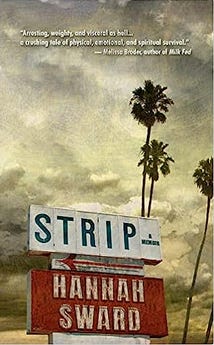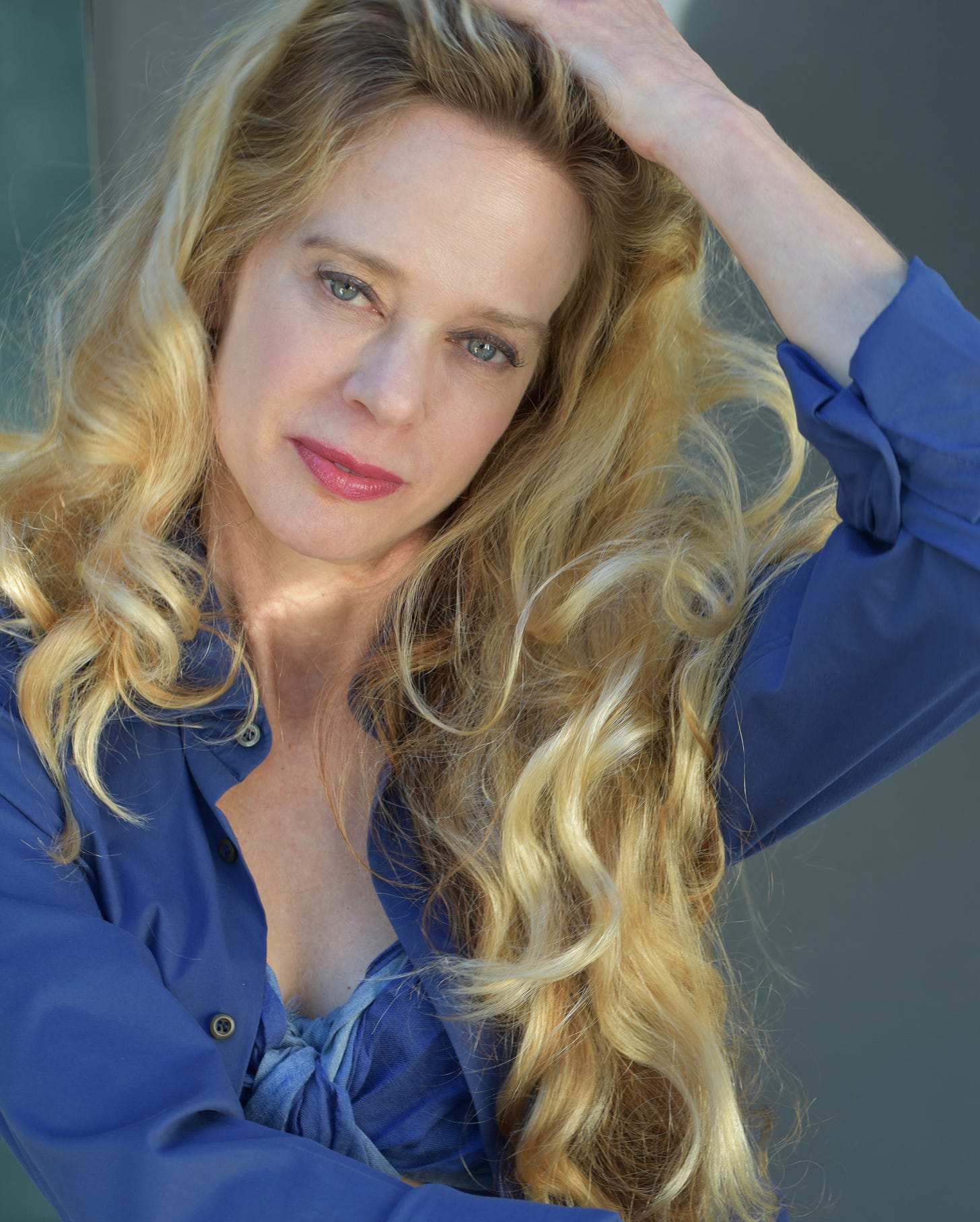I met Hannah Sward a couple of years ago when she got in touch to ask about a press she was considering for her memoir STRIP, her first book. We exchanged a few messages, and in time, she chose the Chicago-based indie press Tortoise Books. STRIP was published in September 2022.
It’s a book in which Hannah balances the dark and the light with wry humor and an absence of cynicism and anger, which is a serious accomplishment considering the many upheavals and painful experiences that populated her formative years.
I’ll leave you here with Hannah, who let me pester her with questions about STRIP this past week. I hope you’ll pick up a copy soon.
Christine S: Your mother and sister appear frequently in STRIP. Did you show them chapters as you were writing it? Was it difficult to write so revealingly about your formative years and the visits you made to Florida to see your mom and sister?
Hannah S: They both read excerpts from the book that were published before STRIP came out, but beyond that no. I was never worried about my sister, but with my mom, definitely. Not so much with her reading about the drugs and the sex work, but as you wrote, my formative years. I was afraid that by writing the very thing I didn’t want to write about, not only would it be painful for me, but for my mom as well. And it was. It was painful for both of us.
CS: You have a mentor, Jill Schary Robinson (New York Times bestselling author of Bed/Time/Story) whom I remember hearing you mention at your book launch last fall at Book Soup. How did she help you complete STRIP?
HS: Jill saw the story in me I was afraid to tell. Without her I’m not sure I would have written a memoir. In terms of actually finishing STRIP, that was something I needed to do on my own. I needed to really sit in silence with all the bits and pieces I had written and somehow weave them together. But up until that point, every Sunday I’d bring three pages and sit with Jill on her couch. Jill had trained with the greats such as Helen Gurley Brown [legendary former editor of Cosmopolitan and woman about town].
I’ll never forget reading Jill a chapter about working for Madame Ava when I was a call girl. The madame had sent me to see a man at the Peninsula—a fancy hotel in Los Angeles.
“Something’s missing,” Jill said when I’d finished reading.
She was right. I hadn’t written the whole truth. I hadn’t written the most important part of what happened in that room. Jill always knew when I was holding back, and I trusted her implicitly. She was funny too, she never understood how much I loved it when she brought out her red pen.
“You’re not going to like this,” she’d say, crossing out whole paragraphs.
I can’t say enough about her. Any writer knows a great editor is invaluable.
CS: You write with bracing directness about your experiences as a sex worker and the sexual abuse you suffered as a child. Did your straightforward style evolve over time or was it with you from the beginning?
HS: When I think back on the early drafts, I never would have known the form STRIP would take. Especially when I consider the short stories and essays I had written in the years leading up to STRIP. They were written in a straightforward style. With STRIP, it was the opposite. One longwinded sentence after another with many ‘and’s which left an out-of-breath quality to it. I think I just needed to get it on the page and get it on the page fast without thinking too much about it. No censorship, no editing – just go, go, and go. But when it came down to editing, that straightforward style re-emerged.
CS: What is something surprising you discovered—about yourself, someone else, or writing itself—while working on STRIP?
HS: The book is dedicated to learning to sit in the hours. When I began writing STRIP, I was so far removed from myself that I didn’t have the capacity to do so. But in time, I grew. It was a slow process. A very slow process. As my capacity to tolerate feelings that came up without running away grew, so did my capacity to sit with the words. And I was able to do so for longer and longer periods of time.
It was something I never ever thought possible, and it was the one thing I had always wanted. To be able to sit with myself. I mean really sit with myself. And from that place to write, to breathe, to show up to the page, to write the hard stuff.
CS: What are you working on now?
HS: A collection of short stories about love, Queenie Goes to Bosnia. I’m also working on a couple of different essays about childhood and my father.
Two excerpts from STRIP, “The Man in the Brown Car,” Part 1:
"My whole life was nothing more than a kind of waiting. Waiting for my mom to come home, even though she never did. She’d sent me a package when I was five, and I’d waited for more. I waited for her letters where she would describe her world in detail, especially the different men in her life. I also waited for my dad—when he went to India to hang out with a swami, or the writers’ colonies in upstate New York and New Hampshire. Then there was the time he went to live alone at an art colony in New Mexico. Then Alina left and I watched him wait for her to come home and I waited for him to stop waiting. I waited for this terrible longing in me to go away, and I knew no one was coming back to fix it."
"Dad is on the shore, cross-legged with his black journal on his lap, pen in hand. I sit on the edge of the dock, feet in the water, and I have my own journal on my lap. I write in mine every day just like he does. His eyes are fixed on the clear gray, blue water. Shades of darkness, ripples, then smooth, ripples again.I like night on the houseboat. I lay on the dock. So many stars, the sky gets all glittered up like it’s going out dancing."
*
Postscript:
A book out this fall (September 12 from Yale University Press) that I’m really looking forward to is Rachel Shteir’s Betty Friedan: Magnificent Disrupter - you can preorder it here.
And
‘s August newsletter, The Practicing Writer 2.0, is now in the world (many submission opportunities - no fees):






I was so excited to see you had an interview with Hannah! True vulnerability requires depth of courage. I loved reading Strip! The memoir is devoid of any writerly tricks. The voice honest and true. In certain places, it brought me to tears. I cared. A testament of Hannah’s ability as a writer and human to, as she says, “sit in the hours.“ Something she has inspired me to do.